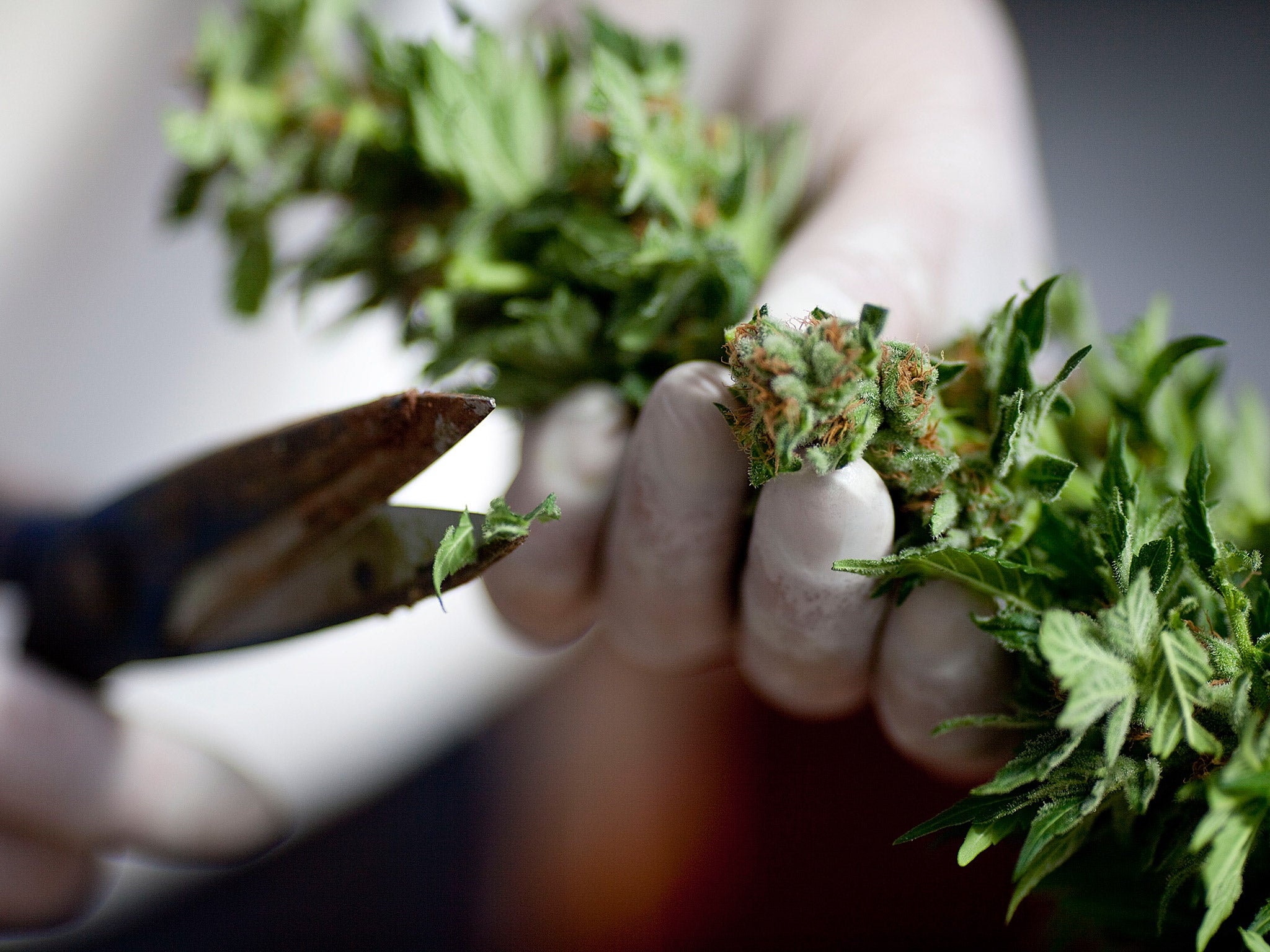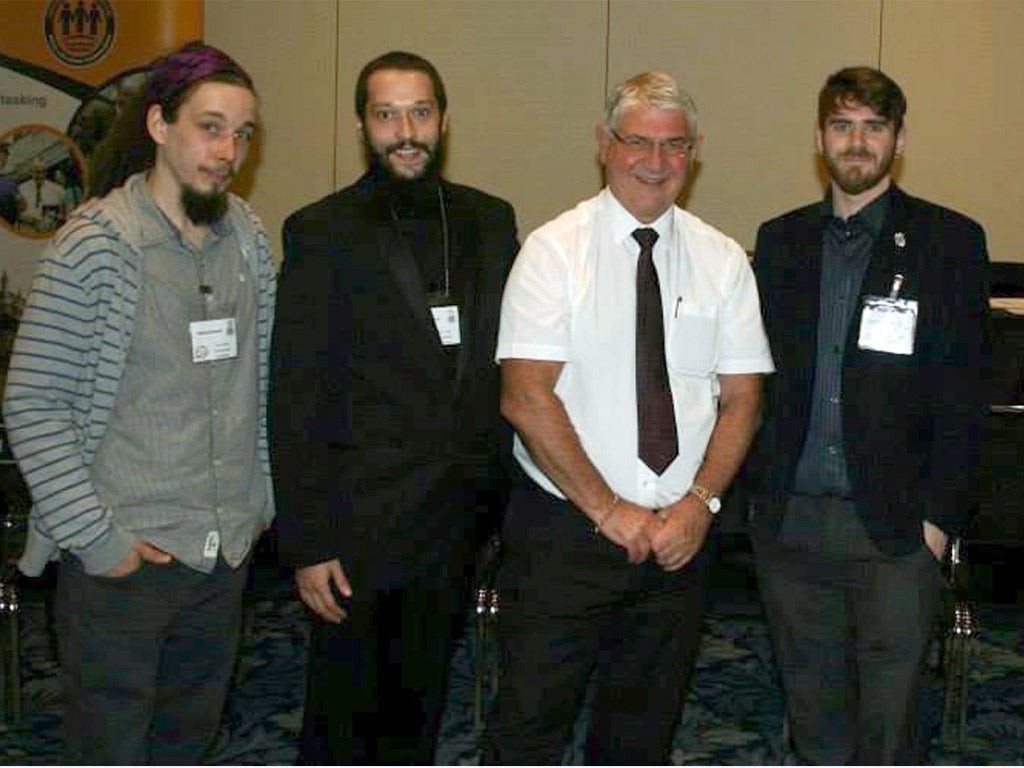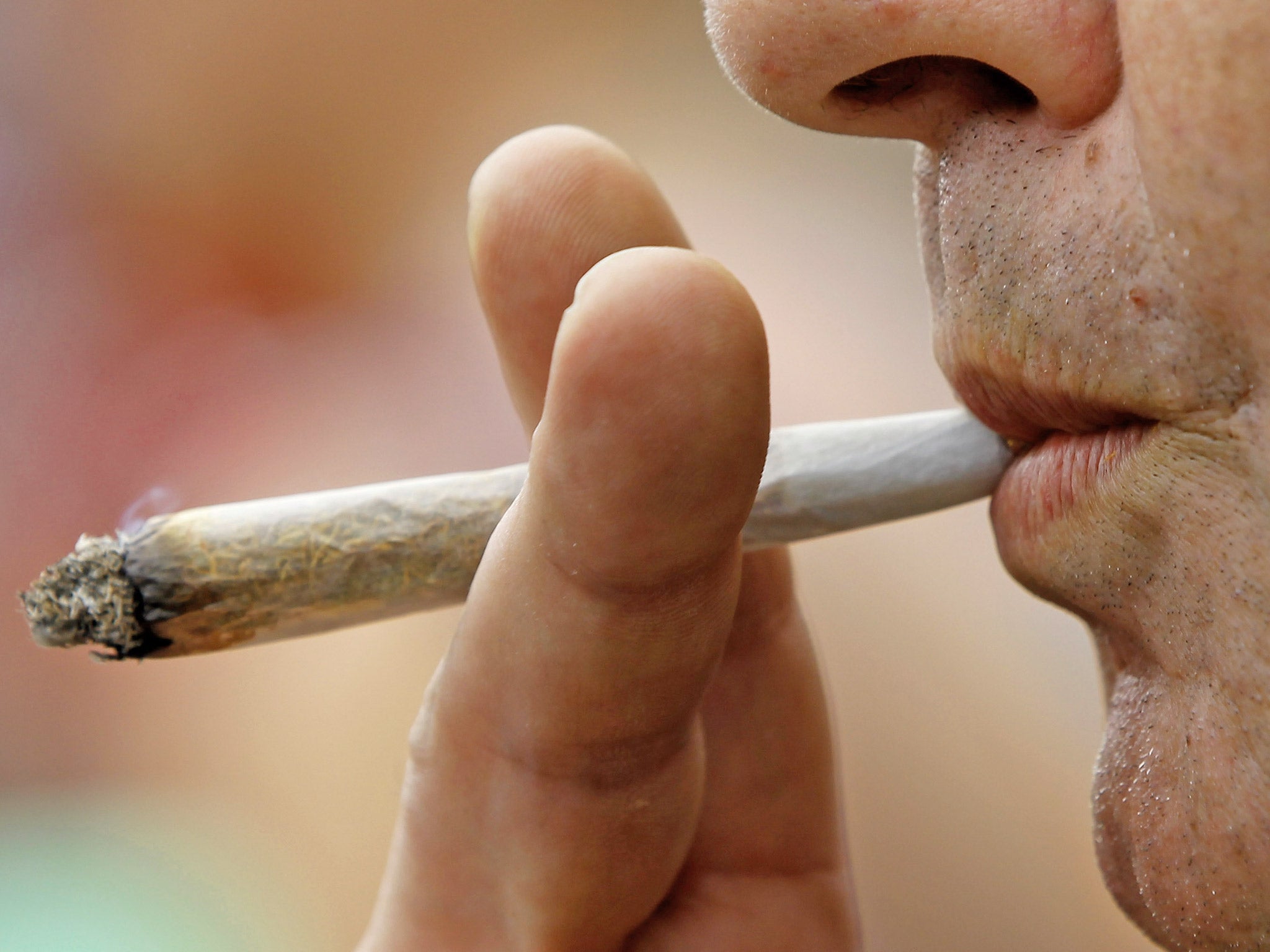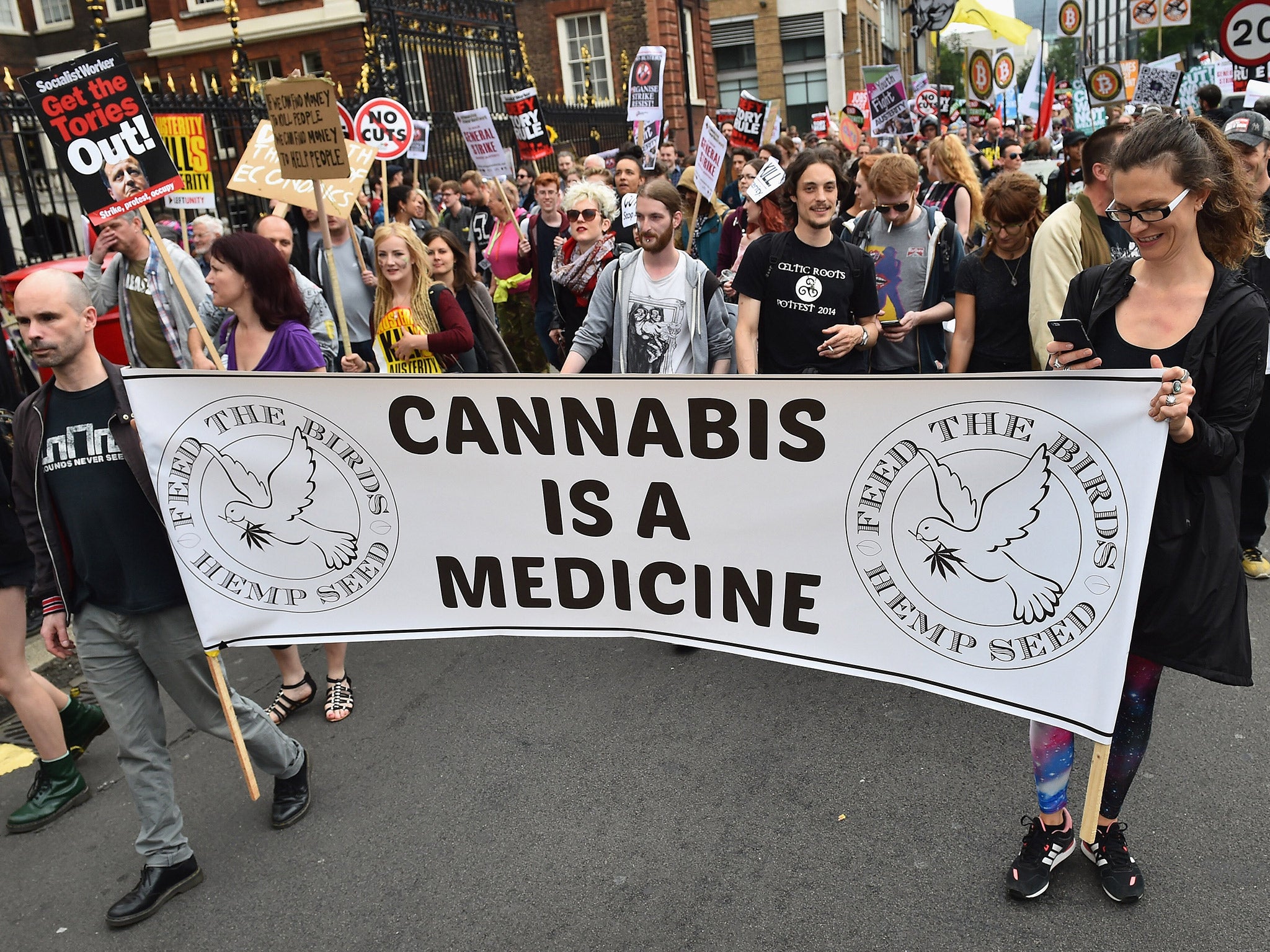Cannabis growers should not face prosecution, says police chief who has stopped targeting 'small-scale' producers
Ron Hogg will now only intervene if Durham growers are being 'blatant'

Your support helps us to tell the story
From reproductive rights to climate change to Big Tech, The Independent is on the ground when the story is developing. Whether it's investigating the financials of Elon Musk's pro-Trump PAC or producing our latest documentary, 'The A Word', which shines a light on the American women fighting for reproductive rights, we know how important it is to parse out the facts from the messaging.
At such a critical moment in US history, we need reporters on the ground. Your donation allows us to keep sending journalists to speak to both sides of the story.
The Independent is trusted by Americans across the entire political spectrum. And unlike many other quality news outlets, we choose not to lock Americans out of our reporting and analysis with paywalls. We believe quality journalism should be available to everyone, paid for by those who can afford it.
Your support makes all the difference.Police throughout England and Wales are being urged to end the blanket criminal prosecution of all cannabis growers by a north-east police commissioner who says his force is already by-passing Home Office guidelines on cultivating the banned drug and no longer targets small-scale production.
In one of the most significant shifts towards formal decriminalisation, Ron Hogg, Durham Constabulary’s police and crime commissioner, who is a former deputy chief constable, said his force’s scarce resources were no longer being used against small growers and were instead being deployed against the “multi-million pound business of organised crime, drug dealers, and street gangs.”

Despite the cultivation of cannabis still being classified by the Crown Prosecution Service as a criminal offence that carries a maximum penalty of 14 years, Mr Hogg told The Independent that while he believed it unlikely that cannabis would become a “legalised” drug, Durham police were no longer going after “users and small-scale growers”. Only if growers were being “blatant” about their activities would the police intervene.
He said: “Our objective is to reduce harm. And as cannabis does cause harm, we are still intent on stopping people using this drug. But we would rather see resources used to help addicts recover, and reduce the number of victims of crime by reducing re-offending, which Durham’s “checkpoint” scheme is aiming to do.”
The commissioner’s statement follows a recent comments by Durham’s Chief Constable, Mike Barton, who said investigating and prosecuting drug addicts was a “waste of police time.”
Mr Hogg, who had a 30 year career in the police serving in four forces, was as Durham’s police commissioner in November 2012. At the 2002 Fifa World Cup he headed an English police unit responsible for combating football hooliganism. His commissioner campaign was backed by the Labour Party.
Although the Home Secretary, Theresa May, backed and promoted the idea of elected police and crime commissioner, there will be concern that a campaign to liberalise drug laws is now coming from the ranks of commissioners.

Following interviews with local media in Teeside, Mr Hogg confirmed north-east police officers had effectively ended active operations to seek out small-scale producers, and will instead offer specialist programmes as an alternative to court action and potential imprisonment.
However, his controversial comments appeared to have cause concern inside Durham Police with the force’s press officer re-contacting local newspapers to deny Mr Hogg had effectively given the green light for legal small-scale cannabis cultivation.
Although there are no official statistics for the scale of small-scale production of the drug, which has both pyscho-active and medicinal properties, recent figures based on results from the Crime Survey for England and Wales shows there was a 45 percent increase in the amount of herbal cannabis seized between 2012 and 2014. However there was an 11 percent decrease over the same period in the number of cannabis plants seized, just over 450,000.

Ninety percent of the cannabis raids involved fewer than 50 plants being seized.
Mr Hogg has met pro-cannabis activists in his region three times over the last year. John Holiday [not his real name], the founder of Teeside Cannabis Club, said the last meeting with the police commissioner took place earlier this month.
He told The Independent “Mr Hogg said that County Durham [police] would no longer be seeking out personal growers unless complaints were made to the police. He explained this wasn’t a free-for-all, that if you smoked a joint in front of a Durham officer you’d still get nicked.”
Mr Holiday said Mr Hogg promised a working relationship between the police and the local cannabis growing community. However that level of co-operation would not extent to what Mr Holiday called “big criminal and the large commercial gangland growers.”
Mr Hogg is planning to champion the benefits of the controversial Durham regime to police forces in England and Wales. He intends to deliver what will seen as effective decriminalisation seminars to the Derbyshire, Dorset, Norfolk and other forces.
Mr Hogg said his views were “not a shift in police policy” and that other forces in the United Kingdom were already operating under similar rules.
He said “This is the position of most police forces. This debate started in the 1990s and has moved on.”
Minister for Policing, Crime, Criminal Justice and Victims Mike Penning said: “Growing cannabis, whether for personal use or organised supply, is illegal and those who do so can face significant jail sentences.
“The Government has no plans to legalise cannabis as there is clear scientific and medical evidence that it can damage people's mental and physical health.”